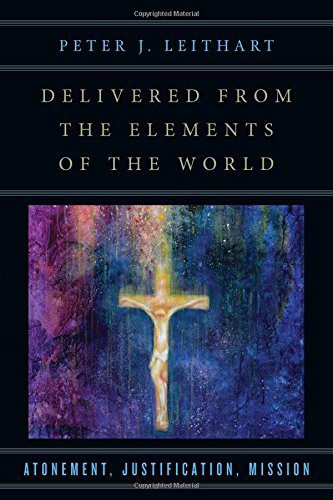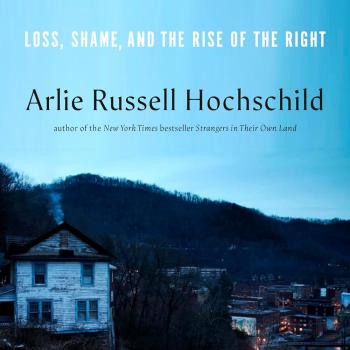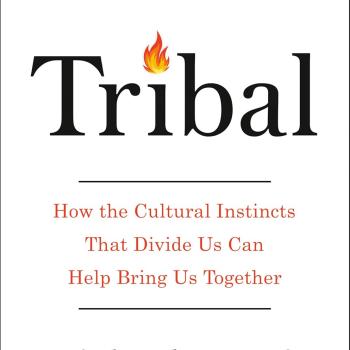One of the most significant books I read in 2016 is Peter Leithart’s Delivered from the Elements of the World (IVP). It’s dense with substantial content. The book is comprehensive in scope, presenting an entire theological lens, not merely a study of a certain doctrine. Also, I was surprised to see how relevant it is for missiology and especially contextualization.
Therefore, in a few posts, I’ll explore a few ideas that are likely paradigm shifting if considered fully. I myself am in the middle of reflecting on their significance. We’ll begin in an unusual way––with a word study.
Leithart’s opening chapters are surprising but refreshing. Chapter one sets the context for the rest of the book:
…all religions have social aspects; they all are embedded in and rely on patterns of interaction among persons. Even the retreat of a solitary ascetic into the desert is a social act, since it is a retreat from social relation. And all religions deal with artifacts, symbols and rituals that might as well be called “cultural.” (p. 11)
I wonder how our theology and missiology would differ if we took this point more seriously, truly letting it permeate our thinking and strategy. He then lays down his thesis:
I will argue…the fundamental physics of every socioreligious, cultural-religious formation consists of practices concerning holiness, purity and sacrifice. Locate the sacred center of a group; its boundaries of tolerable and intolerable persons, objects and behavior; its rituals of sacrifice— discover all this and you have got down to the elementary particles that determine the group’s chemical composition. (p. 12)
Next, the surprising part comes in chapter two.
“Nature” and “Physics”

Leithart gives a novel interpretation of two influential words in the NT–– “nature” (physis) and “elements” (ta stoicheia).
These words do not appear frequently in the NT, but they do have a big effect on how people think about certain ideas.
How do readers normally understand these terms?
People understand the word “nature” (physis) to describe one’s biological nature or perhaps an innate characteristic. “The elements” (ta stoicheia) denote some negative power or rulers that threaten to take us captive (cf. Gal 4; Col 2).
At the bottom of this post, I’ve shown my work (so to speak) via a more detailed word study (illustrating my previous post about word studies). For now, I’ll jump to Leithart’s conclusions.
His view of “the elements” is tied up with his explanation of “nature” (which would take up too much space for this post). In short, he says “nature” (physis) in Paul routine includes the moral order and the basic structure of creation or perhaps culture (pp. 26, 30).
Nature is made up of various interconnected “elements” (stoicheia). He claims “the elements of the world” (Ta stoicheia tou kosmou) “means primarily the organized parts that constitute the system and order of the physical universe” (p. 36).
Social Physics?
Leithart applies this broad definition to the social context in the Bible. He writes,
Prior to the coming of Jesus, the social worlds of Jews and Gentiles were both organized by practices, structures and symbols to which Paul assigns the label “elements of the world.” Minimally, these involved distinctions between purity and impurity, between sacred and profane, and practices that both enforced those distinctions and, to some degree, provided sacrificial pathways of transfer from one to the other. My principal aim will be to show that Paul gives a socioreligious meaning to the phrase “elements of the world,” …Over the course of the book, we will find that, according to the apostle, Jesus delivered Jews and Gentiles from the elemental world into a new social world that operates by different sociophysical laws. (pp. 25–26)
By itself, the phrase “the elements” (ta stoicheia) is neutral. As you can see from the verses below, its precise meaning in context depends on how it is used. In Galatians and Colossians, Paul adds negative adjectives and modifies the noun with the phrase “of the world.” In Heb 5:12, ta stoicheia clearly has positive connotations.
The “elements of the world,” Leithart says, are binary in nature––dividing the world into two parts. The Law, given by God, also has this effect. He explains,
Stoicheic order is a divine-human construct. It is instituted by God but kept intact (or not) by human action. Sacred space, purity rules, sacrifice and priesthood thus constitute the foundational reality of religious and social life in the ancient world, both Jewish and Gentile. These practices and boundaries are stoicheia because they are arranged in ranks; they are stoicheia because they constitute the basics of religious and social life. They are very appropriately called “elements of the world,” and it is these that Paul says have now lost their force. (pp. 40–41)

Therefore, we have a tension. The Law, which is a divine gift (something good), counts as “the elements of the world” (something bad).
The Law itself is not an evil; it is not “worldly.”
Rather, the problem consists in how people use the Law. Remember the “3 little pigs” story? Straw itself is not bad, but you don’t want to make your house out of it. This post cannot do justice to Leithart’s argument. So, don’t let the brevity of this summary cause you to miss the significance of his ideas.
As I’ll discuss in a future post, this perspective of “the elements” has implications for how we understand culture, contextualization, and even “the flesh.” Leithart gives us biblical language and a lens to assess culture in a more balance way, without hastily labeling everything “good” or “bad.”
For those interested, below are the main verses for our word study, with a few observations and key questions.
ta stoicheia in the New Testament
Even people who don’t know Greek can do this. However, if you only look at the Chinese Bible (和合本), this study is impossible because the translation is so compromised. In Chinese, I recommend translating ta stoicheia as 基础元素.
First, using various online resources, one finds “the elements” (ta stoicheia) appears 7 times in the NT. I bold the English word using Greek stoicheia below.
Gal 4:3, “In the same way we also, when we were children, were enslaved to the elementary principles of the world. […我们为孩童的时候,受管于世俗小学之下,也是如此]”
Gal 4:9, “But now that you have come to know God, or rather to be known by God, how can you turn back again to the weak and worthless elementary principles of the world, whose slaves you want to be once more […怎么还要归回那懦弱无用的小学,情愿再给他作奴仆呢]?”
Col 2:8, “See to it that no one takes you captive by philosophy and empty deceit, according to human tradition, according to the elemental spirits of the world [世上的小学] , and not according to Christ.”
Col 2:20, “If with Christ you died to the elemental spirits of the world [世上的小学], why, as if you were still alive in the world, do you submit to regulations—”
Heb 5:12, “For though by this time you ought to be teachers, you need someone to teach you again the basic principles of the oracles of God [….谁知还得有人将神圣言小学的开端另教导你们]. You need milk, not solid food,…”
NOTE: The Chinese Bible flips the word order. “Elements” [小学] should be object, not “the beginning” [开端]. Using the same words, the order should be: … 圣言基础的小学.
2 Peter 3:10, 12, “But the day of the Lord will come like a thief, and then the heavens will pass away with a roar, and the heavenly bodies [有形质的] will be burned up and dissolved, and the earth and the works that are done on it will be exposed… waiting for and hastening the coming of the day of God, because of which the heavens will be set on fire and dissolved, and the heavenly bodies [有形质的] will melt as they burn!”
Observations & Questions
On the one hand, “the elements” (ta stoicheia) in Galatians and Colossians seems to have a negative meaning.
In Gal 4, Paul clearly equates “the elements of the world” with the Mosaic Law. Colossians 2 also associates the two and seems to identify “the elements of the world” with tradition.
If we pause for a moment, this is troubling since Paul never says the Law is evil or sinful. In fact, Paul says quite the opposite in Romans, where he defends the Law (Rom 3:31; 7:7, 12, 14, 16, 22). Multiple times, Paul says the Law is something one can and should fulfill (Rom 13:8, 10; Gal 5:14; 6:2). This leads to our first big question.
Question #1: Why does Paul say the Law represents “the elements of the world”?
On the other hand, Heb 5:14 is unambiguously positive. The “basic principles” refer to the basic truths from God (i.e. “milk”) that believers should accept and follow.
Finally, the expression in 2 Peter is neutral, simply referring to the physical elements of the universe (which, by the way, fits a typical usage among ancient writers).
Question #2: How does “the elements” (ta stoicheia) have so many diverse connotations?
Furthermore, if you compare the verbal form στοιχεω, (Acts 21:24; Rom 4:12; Gal 4:25; 5:25; 6:16; Phil 3:16), you’ll all have to do with some standard of conformity.













